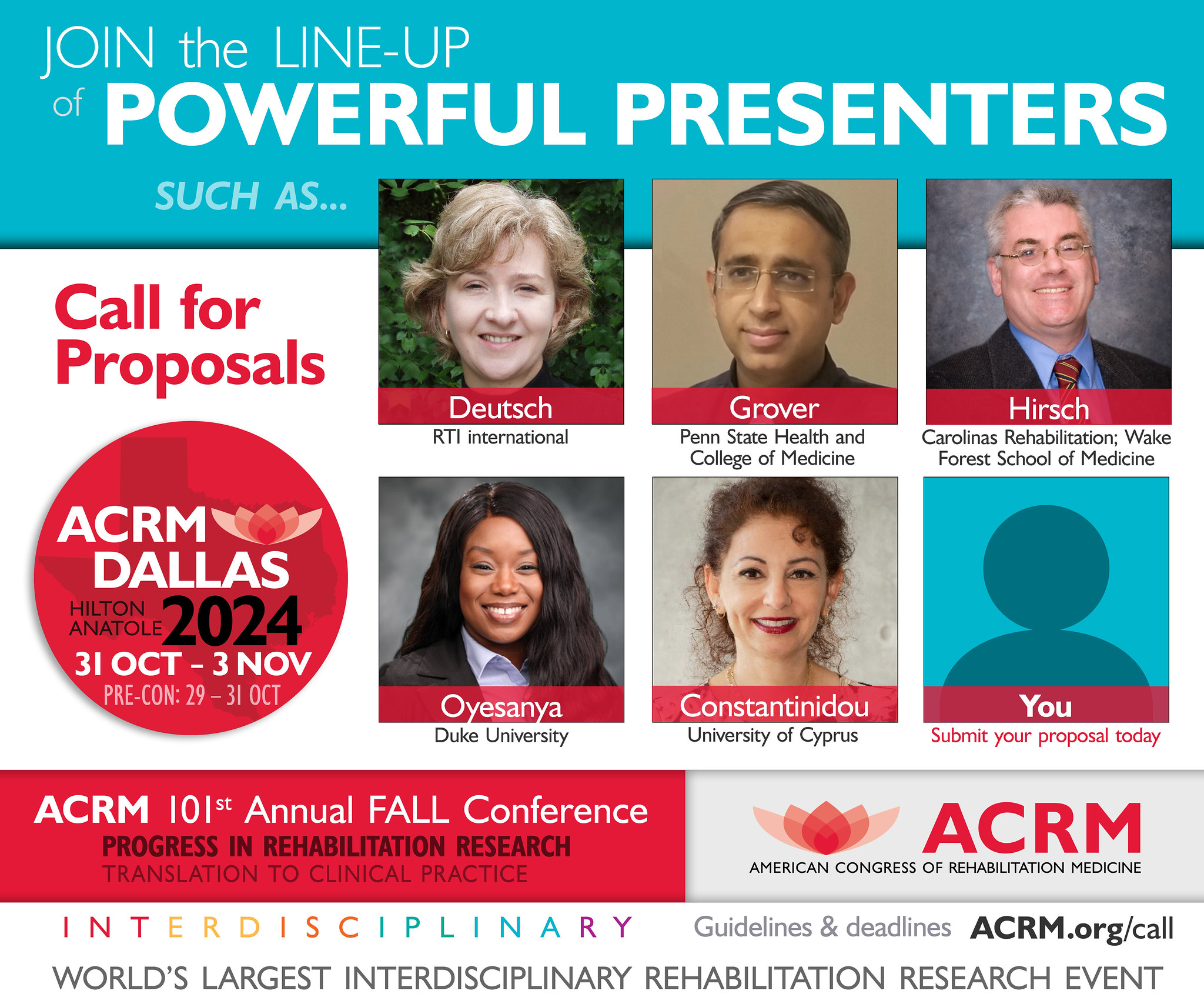If you have a question you would like to submit for the Ask the Mentor column, or if you would like to serve as a mentor for the column, please email Brooks Wingo.
QUESTION:
“As a clinician developing my research expertise, I feel passionate about at least 2-3 different areas where I feel I can contribute. In this competitive funding environment would you recommend early stage researchers like me to write grants on a single or multiple idea simultaneously? Also, how to know if my idea is good enough/innovative enough to get attention of a reviewer?”
RESPONSES:

Patricia Heyn
Patricia C. Heyn, PhD, FGSA, FACRM
Associate Professor, Department of Physical Medicine and Rehabilitation, University of Colorado Denver Anschutz Medical Campus
Due to your early clinical scientist career stage, reviewers tend to express a more positive response to applications that are straightforward, simple, clear, and “extremely” focus. There seems to be a reviewer “cultural believe” that junior/early career scientists need to produce feasible, logical, and conceivable career path advancing application. So, even if you are 100% sure that you can and will succeed in writing, implementing, and completing successfully an intricate, comprehensive, AMBITIOUS project with complex hypothesis, my suggestion is for you to avoid the common reviewers “ambitious, lack of focus, no rigor” criticism by saving your deep knowledge and science complexity for future developments. Work with one and strong aim and after careful evaluation of the methodology and design needed for this main aim to succeed, you might consider additional aims if aligns well with the budget and proposal timeline.
If you have your heart set in the depth and intricacy of your science, then act strategically by dissecting the different-and important-components of the science into possible multiple complimentary studies. To support your grand finale success, consider different and specific funding sources that could supplement the different components of your science. Like the CCTSI Pilot funds, institutional pilot funds, local and national foundations, private sponsors, etc. Getting any type of fund support is always better than getting none and it is the startup money that will build significant progresses to your career path. Like any other business, you need to show that your plan is set for success.
As for knowing if your idea is good enough/innovative enough to get attention of a reviewer: You and your mentor are the best “thermometers” to evaluate the scientific rigor and innovation of your proposal. Before you even consider in writing a grant proposal, you are supposed to extensively (and fearlessly) evaluate the evidence and current literature to find out about the pros and cons of your science. The science that you want to contribute. The idea is that you are going to contribute by designing your aims and hypothesis based on important and clinically relevant areas that are weak or unmet (other scientists are not properly addressing it). Therefore, if your proposal is indeed touching important unmet scientific areas, you should have enough supportive material and knowledge to back the clinical relevance and innovation of your science.

Michael Boninger
Michael L. Boninger, MD
Professor and UPMC Endowed Vice Chair for Research, Department of Physical Medicine & Rehabilitation, University of Pittsburgh School of Medicine
There are a few key words in your questions I want to hone in on: “competitive funding environment” and “write grants.” In my mind, these words mean that you want to get independent funding from an agency like the VA, NIH, or NIDILRR. That’s great; rehabilitation needs more researchers who can compete for funding. Importantly, there is a known best path from being a clinician to becoming an independently funded researcher. That path involves devoting substantial time to research (around 75%) and finding a research mentor. The funding agencies mentioned previously all offer career development awards, and all require a senior mentor(s) who can provide apprenticeship like teaching to enable you to reach the goal of independent funding.
Another commonly accepted fact is that beginning researchers need to be as focused as possible. What you need to do is develop a domain of scientific expertise. However, the fact that you are open to multiple areas is a potential positive. Which brings us back to finding a good mentor. I believe that, for a junior investigator, a good mentor is more important than a good idea. So, my advice would be to look for mentors at your institution in your areas of interest. The ideal mentor would be senior, associate professor or higher, have significant funding from federal sources, and have a track record of mentoring junior faculty who went on to develop independent research careers. Ideally, in a meeting with them you would feel comfortable and positive about them advocating for your research career. Pick the best mentor and let that help you choose which of your areas to focus on.
The final part of your question becomes easy. Your mentor should have the experience to know if your idea is good/innovative enough. I would encourage you to be as flexible as possible with your ideas. You want your work to be closely aligned to your mentors and should listen to their advice as to be the best grant to write. Finding a mentor can be difficult, so ask your department chair and others at your university for advice. One great resource is NIH Reporter. This website has information on all NIH funded grants and you can search for your institution and your interest areas. There might be someone where you work that is working in one of the areas you feel passionate about.








